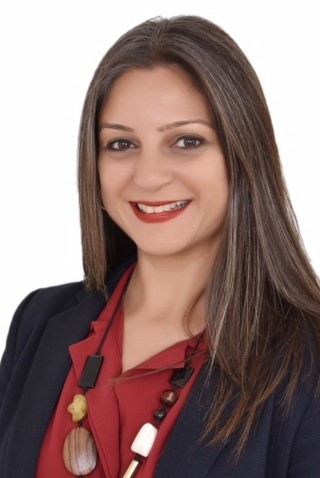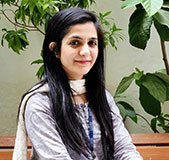
What is an Oxford Teachers’ Academy course?
The Tutored Online OTA course is jointly developed by OUP-English Language Teaching (ELT) and Oxford University Department of Continuing Education for Professional Development and Training of teachers.
 |
Provides a differentiated professional development opportunity. |
 |
Delivered over a 6-week duration. |
 |
Involves synchronous and asynchronous delivery. |
 |
Delivered by qualified and experienced tutors. |
 |
OUP/OUDCE Certificate on submission of sufficient Evidence of Learning (E.o.L). |
 |
Certificate of Completion from Oxford University Department for Continuing Education (OUDCE) |
Courses
Mentoring Skills
ISBN: 9780190709709
Start date: 27 September 2023
End date: 3 November 2023
Description: This course is designed to support the development of mentoring in a variety of education contexts. It takes the view that mentoring consists of a one to one relationship that seeks to support professional development of an individual using a range of approaches, frameworks and techniques that most suit the situation in question.
The course, therefore explores the qualities and competences of a mentor and how these might be developed, identifies and practices mentor techniques and activities appropriate for the different approaches and analyses the interaction frameworks which might be used in mentor meetings to enhance their developmental
impact.
In addition, the course offers practical support in the process of either evaluating an existing institutional mentor provision or in the design and implementation of a new program.
The focus throughout is on hands on experimentation with practical activities and their subsequent analysis for
contextual relevance and application.
Global Skills
ISBN: 9780190709495
Start date: 2 October 2023
End date: 8 November 2023
Description: In a fast evolving world, it is increasingly recognised that education needs to cover more than just traditional subjects if students are going to be equipped to flourish now and in the future.
This Oxford Teacher’s Academy course suggests ways that we can bring added value to English classes by incorporating the following clusters of Global Skills, which are critical for lifelong learning and success:
- Communication and Collaboration
- Creativity and Critical Thinking
- Emotional Self-Regulation and Wellbeing
Using reflective, exploratory and collaborative methods, the course examines the language learning applications of each skills cluster. It also focuses on how Global Skills can be assessed, and suggests strategies for creating a Global Skills learning environment one that benefits both students and teacher.
Teachers of all contexts will find practical suggestions and workable strategies for promoting Global Skills within the English lesson, without needing to overhaul either the curriculum or the teaching timetable.
Description
Using reflective, exploratory and collaborative methods, the course examines the language-learning applications of each skills-cluster. It also focuses on how Global Skills can be assessed and suggests strategies for creating a Global Skills learning environment -one that benefits both students and teacher. Teachers of all contexts will find practical suggestions and workable strategies for promoting Global Skills within the English lesson, without needing to overhaul either the curriculum or the teaching timetable.
Certificate of Completion
Completion of Oxford Teachers' Academy courses is certified by Oxford University Department for Continuing Education.
At the end of the course, participants will need to submit an Evidence of Learning assignment which is 450-650 words long. They have 3 months after the end of the course to submit this as a certificate requirement.
The Certificate includes the title and duration of the course, participant name, unique participant number, and the date.

Key features
Oxford Teachers’ Academy courses are suitable for teachers with an initial qualification and some teaching experience. Typically they provide 30 hours of core material spread over 8 sessions, with suggestions for further reading and interesting websites, videos, and blogs for each topic.
Participants have 12 months to access the course content on their computers anytime, anywhere with access to the internet. That means they can fit their study around teaching commitments, at a pace to suit their own learning style.
Session aims and topics have been mapped onto the EAQUALS Framework of Language Teacher Training and Development.
The structure of the session specifically facilitates self-study and helps all participants stay engaged through a media-rich, interactive learning experience, encouraging reflection, and providing suggestions of possible answers and solutions. Participants can also contribute to and create discussions and chat with other teachers taking the same course.
The courses are full of innovative ideas, approaches and theories. They offer plenty of food for thought, including chapters from Professional Development and Applied Linguistics books, video interviews with experts, and links to academic journals. To fully benefit from this rich resource, we recommend English proficiency level of at least B2 on the CEFR.
Course requirements
- Participants must demonstrate a minimum intermediate level of English language proficiency (B2) to be able to process and engage fully with course content.
- Participants should have access to a class/students to apply course practice.
- Participants should have access to an internet service, a laptop/PC, and headphones.
- A minimum of 10 and a maximum of 35 attendees must commit for the course to be conducted.
- Participants will be expected to commit a minimum of 18 hours online over the duration of their course –roughly 3hrs per module.
Tutors
Neda Mulji

Neda Mulji is working with OUP as Senior Manager, Professional Development. Before joining OUP, Neda has taught communication skills and English courses for several years as a university lecturer in Dubai. She has an MA in Postcolonial Studies – literature and culture from Goldsmiths, University of London, a Cambridge Certificate of English Language Teaching to Adults (CELTA) and a Postgraduate Certificate in Higher Education (PGC-HE) from Middlesex University. Neda writes regularly for Dawn on topics in education and has recently authored a book on parenting.
Seema Khurram

Seema Khalid is a Certified Educationist from the Australian Catholic University with expertise in Educational Leadership & Management, Staff Development and School Management. She has diverse experience of teaching and leadership at schools and higher secondary school (College Level). Seema’s specializes in developing effective classroom tools to teach conceptual and problem-solving skills, using an activities-based approach. She holds four years of leadership experience at Aga Khan School in capacity of Academic Coordinator & Vice Principal. She is currently working as a Regional Professional Development Coordinator at Oxford University Pres
Charlotte Murphy

Charlotte is a DELTA qualified ELT Teacher, with over 8 years of teaching experience. She has taught in South Korea, Japan, Thailand, Cambodia and the UK, teaching Young Learners, Teenagers, and Adults across all levels, from beginner to proficiency. She has experience in delivering courses for General English, Business English, and Exam Preparation (IELTS, Trinity GESE and Cambridge First Certificate).
Charlotte has written and delivered many teacher training workshops, both face-to-face and online, with her specialities focused on General English for Adults and Teenagers. Her workshops provide many practical teaching tips and activities, along with reflective discussion points.
She is currently working for Oxford University Press as a Senior Consultant and Teacher Trainer, where she has presented at both in-company and external face to face events in the UK, Ireland and France. She has also written for the OUP blog.
Saadia Naeem

Saadia Naeem is an OTA-certified trainer. She has 14 years of development and humanitarian experience in education, teaching, teacher training, and capacity building under various designations such as Academic Coordinator, In-Service Teacher Training Manager, Senior Field officer, Field Officer Education, Training officer, Community Mobilization Officer, & Monitoring and Evaluation, Coordinator. Saadia is currently working as Regional Professional Development Coordinator at Oxford University Press, Pakistan. Part of her work at the Press includes conducting sessions for the Virtual Global Inclusion Programme.
How it Works?
The courses are full of innovative ideas, approaches and theories. They offer plenty of food for thought, including chapters from Professional Development and Applied Linguistics books, video interviews with experts, and links to academic journals.


